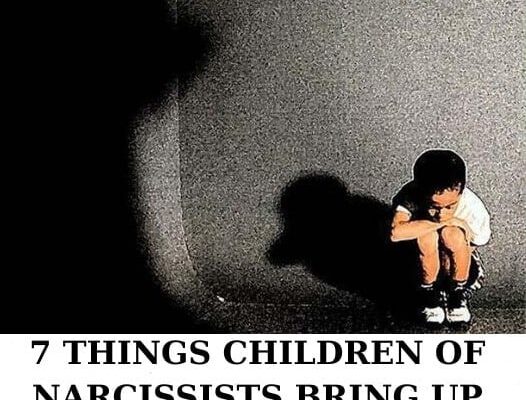Growing up as children of narcissistic parents can leave a mark that sticks around for years. Even long after childhood, those early experiences shape how people think, feel, and relate to others. A lot of the same topics keep coming up when people talk about what it was like. These aren’t random memories. They’re patterns that affect friendships, jobs, and romantic relationships. Some of these struggles feel confusing at first, but naming them is a big step toward healing. Once people start talking about it, they often realize they’re not alone. These shared experiences can bring a lot of clarity. Here are seven things children of narcissistic parents often mention, and why these topics tend to stick around.
1. Never Feeling Good Enough

One of the most common struggles for children of narcissistic parents is feeling like nothing is ever enough. Narcissistic parents often expect perfection or keep changing the rules. It can feel like the finish line keeps moving no matter how hard you try. Praise was rare or felt like it came with strings attached. This creates a deep sense of doubt that doesn’t just disappear in adulthood. People might look confident on the outside but still question their worth inside. That voice in their head might sound just like their parent, pointing out flaws and mistakes. Even big accomplishments don’t always feel satisfying. That pressure shows up at work, in friendships, and in relationships. Talking about it can be the first step to realizing you deserve love without having to earn it.
2. Feeling Invisible in Their Own Family

A lot of people describe feeling like they didn’t really matter growing up. Their thoughts and feelings were ignored unless they made the parent look good. Speaking up often led to being dismissed, scolded, or made fun of. So over time, many learned to stay quiet just to keep the peace. That silence turns into a habit, even when they grow up. It’s hard to ask for what you need when you’re used to being ignored. Some avoid conflict so much they become people-pleasers without even realizing it. Others feel uncomfortable being the center of attention, even in safe settings. Feeling unseen becomes a normal part of life. Realizing this pattern is a big step toward finding your voice again.
3. Guilt for Setting Boundaries

Saying “no” can feel wrong when you grew up being told it was selfish. Narcissistic parents often saw boundaries as disrespect or rejection. So even small things like turning down an invitation can feel really uncomfortable. Some people apologize all the time, even when they’ve done nothing wrong. Others second-guess their choices, wondering if they’re being too harsh. That guilt runs deep and can show up in many areas of life. It makes it hard to take care of yourself without feeling bad about it. But boundaries are not mean or cold. They’re actually a sign of self-respect. Over time, many children of narcissistic parents learn that it’s okay to protect their peace without feeling guilty.
4. Confusion Over What Love Really Is

Love didn’t always feel safe growing up. Sometimes it was warm and kind, but other times it was cold, controlling, or missing completely. That kind of inconsistency makes it hard to know what love should look like. As adults, many people find themselves drawn to partners who are distant, moody, or hard to please. Others might avoid relationships entirely because they’re afraid of being hurt again. Some think they don’t deserve love unless they earn it. It’s also common to confuse drama with passion or control with care. All of this can make relationships feel confusing or stressful. Learning what real, healthy love looks like takes time and support. But it’s absolutely possible.
5. Anxiety Around Conflict

Fights in a narcissistic home often didn’t feel safe. They might have ended with yelling, silent treatment, or being made to feel guilty. So it’s no surprise that many people now avoid conflict as much as possible. Even a simple disagreement can trigger anxiety or make them shut down. Some say yes when they want to say no, just to avoid a fight. Others bottle up their feelings until they can’t take it anymore. This pattern makes honest communication hard and can cause stress in relationships. But not all conflict is dangerous. Learning how to speak up calmly and respectfully is a skill anyone can build. It just takes practice and patience.
6. Trust Issues With Others

Trusting people can feel risky when your earliest relationships were full of lies or manipulation. Some people become super guarded, keeping their walls up at all times. Others go the opposite way and trust too quickly, hoping to find connection fast. Either way, the results of gaslighting are usually painful. It becomes hard to figure out who’s safe and who’s not. This makes relationships tricky and sometimes lonely. People might push others away or stay stuck in toxic situations. Building trust again starts by learning to trust yourself. That means paying attention to your instincts and noticing how people treat you over time. Children of narcissistic parents often have to rebuild that sense of safety one step at a time.
7. Doubting Their Own Reality

When a parent constantly twists the truth, it’s easy to start doubting yourself. Narcissistic parents often deny things they’ve said or done, making their child question their memory or feelings. Over time, this leads to a lot of confusion and self-doubt. Adults who grew up this way often second-guess themselves, even about small things. They may rely heavily on others for reassurance or avoid making decisions altogether. That constant self-doubt can be exhausting and isolating. It’s also easy to miss red flags in relationships because they’re used to ignoring their gut. Rebuilding trust in your own thoughts and feelings takes time. Journaling, therapy, or just checking in with yourself more often can help. Eventually, children of narcissistic parents start to feel more confident in their own perspective.
Conclusion: Healing Starts With Awareness

These seven struggles show how deeply childhood experiences can shape adult life. When you grow up with a narcissistic parent, it affects your sense of self and how you relate to others. But naming these patterns is a huge step forward. Once you see them clearly, it becomes easier to make changes. You’re not alone in this. Many others have worked through the same things and found ways to heal. Talking to a supportive therapist, reading helpful resources, or connecting with others can make a big difference. Children of narcissistic parents don’t have to stay stuck in old habits. Bit by bit, it’s possible to build a life that feels honest, safe, and more like your own.



